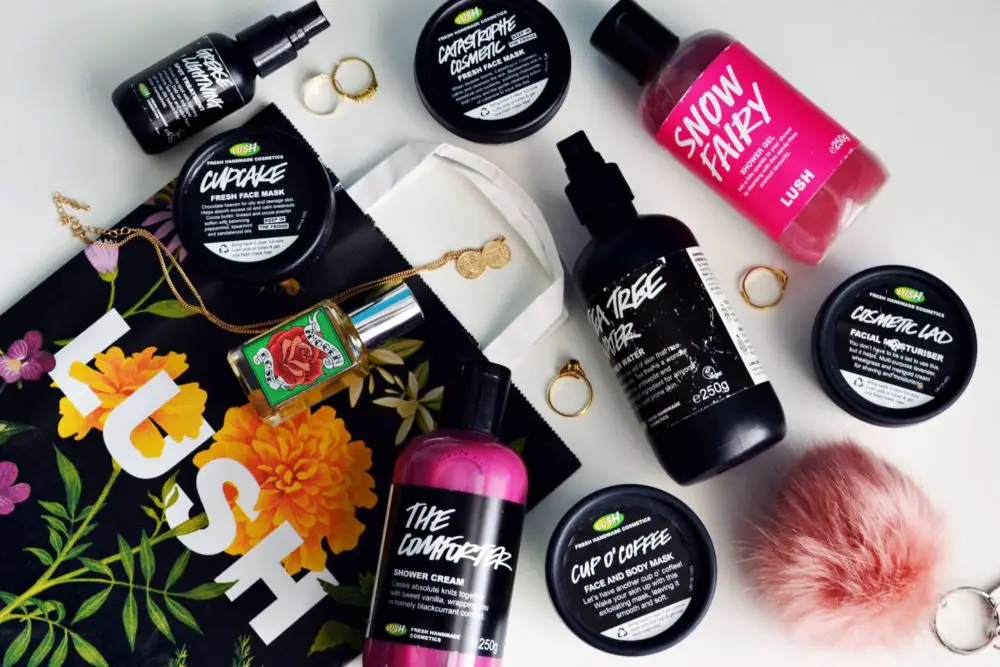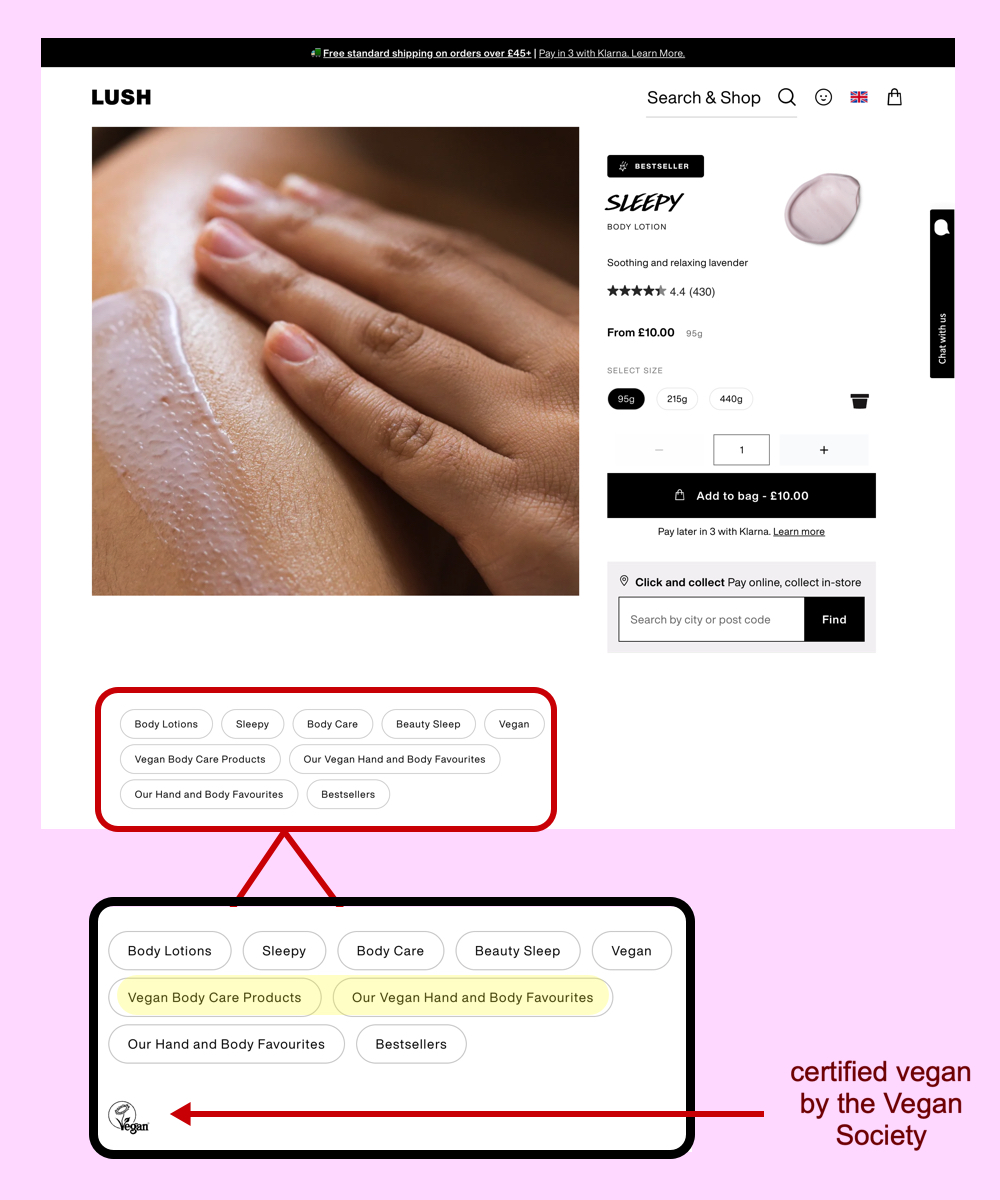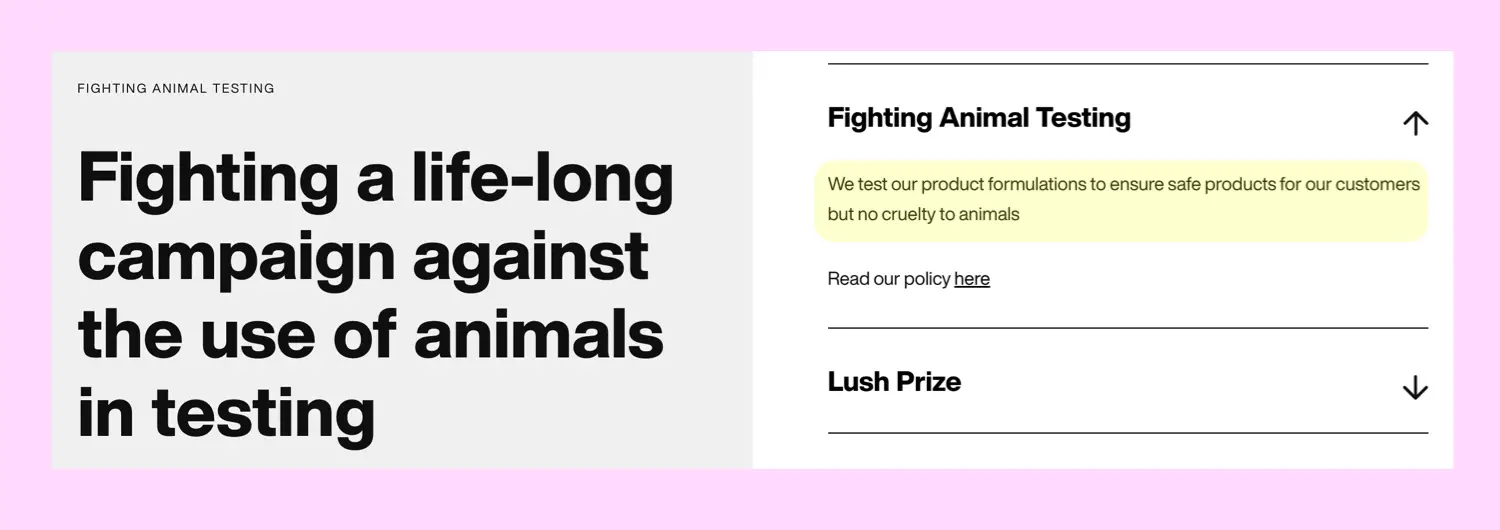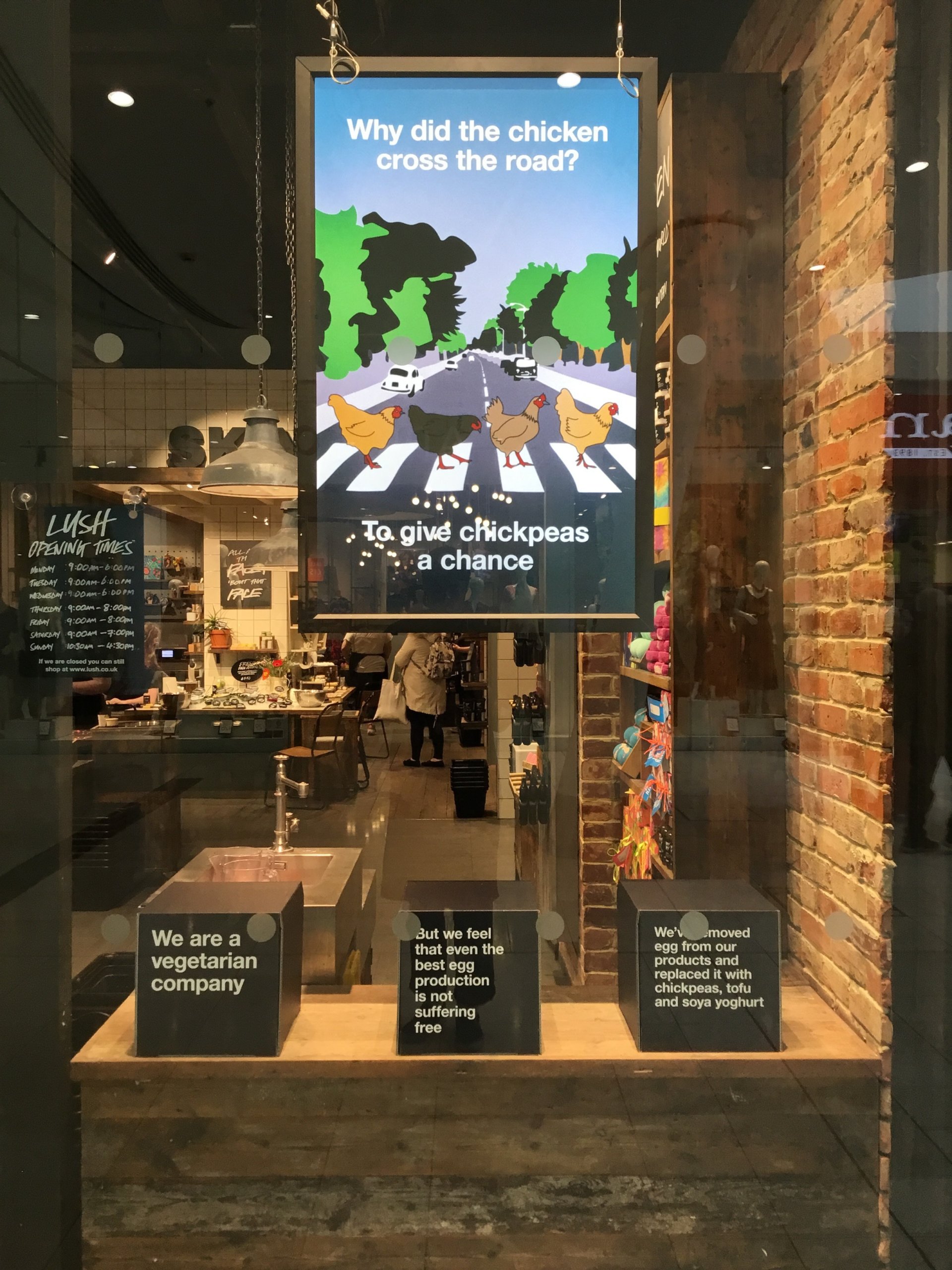Lush is synonymous with fresh, handmade cosmetics and eccentric bath bombs with quirky names like “unicorn poop” and “sex bomb.” But is it really as ethical as it preaches? Here are its real cruelty-free and vegan policies.
(Disclaimer: No unicorns were harmed in the making of these bath bombs.)
Lush is cruelty-free. It doesn't conduct animal testing on its products, nor does it distribute its cosmetics where animal testing is required by law. While Lush does offer a range of vegan cosmetics, it is not considered a vegan brand.
Lush was co-founded by a group of six people. (Yes, six people.) Together, this dynamic group wanted to build a brand that made natural, fresh, and preservative-free personal care using low-waste packaging.
This is exactly what they did. Today, Lush offers a variety of bath and body products, skin and hair care, deodorants, cosmetics, and fragrances.
Lush has invented many low or waste-free personal care products that are increasingly popular today. If you’re a 90’s baby with nostalgia for bath bombs, you have Lush to thank!
Shampoo bars, bath melts, and solid bath oils are all Lush patented products too.
But before you dive into purchasing decadent products, here's what you need to know about the true efforts that Lush is making in sustainable and cruelty-free cosmetics. Also – why aren’t they vegan yet?Is Lush Cruelty-Free and Vegan?
Lush is 100% Cruelty-Free
It does not:
Lush has strong cruelty-free values. It has accreditation from Choose Cruelty-Free, which is now part of Cruelty-free International and Leaping Bunny!
This is the only internationally recognized certification that guarantees a brand is cruelty-free. Lush also has PETA accreditation!
The brand is privately owned, so you don’t have to worry about a parent company with questionable animal testing policies.
This brings us to our next point:
Lush is Not Vegan
Although Lush is not entirely vegan, there is some good news –
95% of its products are vegan, and it is also expanding its range of vegan products by constantly researching alternative ingredients and formulations.
If you want to ensure the product you’re buying is vegan, once you’re on its website page – scroll down to its key features.
Everything vegan will have a Vegan Society trademark stamp underneath its product image and description.
For example:At this stage, the only two animal-derived ingredients that Lush uses are:
If you're interested in which products are vegan or finding vegan brand alternatives – keep reading or click on this link: Lush vegan products.
Animal Testing Policy and History
Lush has been clear on its anti-animal-testing stance since the start. The brand has been committed to creating clean, effective, and affordable cosmetics that are also cruelty-free since it was founded in 1995.
Cruelty-Free Status in 2022
Here is a screenshot of Lush official statement regarding its cruelty-free policies and vegan products, taken from its website:
Certification
Lush is Choose Cruelty-Free certified (which falls under the Leaping Bunny program umbrella), and PETA certified too!
Talk about overachievers – right? (We love it!)
While you might know PETA very well – it surprisingly doesn’t hold the strictest cruelty-free regulations. It only requires a brand’s written consent that abides by the PETA code of conduct.
Certification from Leaping Bunny is ideal because it holds rigorous standards and does regular audits to ensure they are upheld.
Leaping Bunny program certifications prove that:
If you see a bunny stamp on the back of your product bottle – that's an excellent sign. But don't be fooled by the image itself. A lot of brands are using fake logos to mislead consumers.
Do your homework and see which products are genuinely cruelty-free first. This article will help you: Which Cruelty-Free Logos Can You Trust?
Is Lush Sold Where Animal Testing is Required By Law?
Lush does not distribute its products to China or any country requiring animal testing on cosmetics by law.
However, it does sell its products to customers in mainland China directly. This means the products are not tested before arriving at a shopper's delivery address.
China has a shocking track record. It is the country with the most animal testing globally, with over 20 million animals used per year.
However, if you live in China or are concerned about its cruel beauty policies, there are a couple of loopholes.
Here’s how to find cruelty-free cosmetics in China: Are Cosmetics Made in China Cruelty-Free?
What Lush Products Are Vegan?
Where to begin!
Lush has an extensive range of vegan products. Each one is more indulgent and fragrant than the next.
If you’re an ethical vegan with strong sustainability principles – a Lush store is basically heaven.
To save you some time (more like a lot of time), here are some of Lush’s most popular and award-winning products to choose from:
You can visit its website for a full list of Lush vegan products, you can visit its website.
Vegan Alternatives to Lush
We love what Lush represents. It's 100% cruelty-free, affordable, and low waste; users also rave about its efficacy.
But if the brand is not easily accessible to you, here are some other options to choose from:
Is Lush Natural and Organic?
Lush is a natural brand that uses high amounts of natural ingredients in each product. Where necessary, it uses safe and clean synthetics to balance its formulas.
Although Lush might use some organic ingredients, it is not certified organic, nor does it advertise itself as an organic brand.
Clean vs. Natural Ingredients
The term "natural" is not regulated for cosmetics and skincare. In other words, it doesn't hold one specific meaning.
Usually, it means a product is free of certain more toxic synthetic ingredients, including parabens, phthalates, sulfates, and more. But people also interpret "natural" to mean ingredients of immediate plant origin.
Here's the thing: "natural" is not necessarily good. Just because an ingredient is natural (take lemon juice, for example) doesn't mean you should rub it on your skin.
All products use a certain amount of synthetic ingredients in their formulas, and Lush is no exception – but it can choose to use better or clean synthetics.
If a synthetic ingredient is "clean," it means it is safe and non-toxic for us. Its purpose is to preserve the stability of a beauty formulation.
A few naturally-derived ingredients Lush uses to enhance its cosmetics include:
Does Lush Use Safe Ingredients?
According to Skin Safe, Lush has an 82-91% allergen-free ranking across 191 products. Of those, only 5 scored 82%, meaning the rest sat at 91%!
Many of Lush’s products are free of allergens such as top common preservatives, parabens, propylene glycol, gluten, nickel, MCI/MI, soy, irritants, and dye.
Reading the ingredient list is crucial because Lush is not 100% hypoallergenic or non-comedogenic, and they do not claim to be.
The EU/UK Have Stricter Ingredient Regulations
As a conscientious shopper, you must read up on any brand's ingredient list before you make a purchase – especially if you live within the United States.
This is because the FDA has only banned or restricted 11 harmful chemicals from cosmetics within the country. Europe and the UK, on the other hand, have banned 1,328!
Given Lush is a UK-based brand with strict ingredient policies – you don't need to worry too much.
But for good measure, here are the ingredients you always want to avoid in skincare and cosmetics:
Are Cruelty-Free Ingredients Safe?
If you’re worried about how safe it is to use cosmetics not tested on animals – please relax and take a sigh of relief.
There is no reason why cruelty-free products shouldn’t be as safe as anything tested on animals.
Not only is it easy to test ingredients without using animals altogether, but there are so many pre-approved ingredients you can use to make cosmetics that there is no need.
If you’re interested, here’s more on the subject: Are Cruelty-Free Cosmetics Safe?
Is Lush Sustainable and Ethical?
Lush goes hand-in-hand with sustainability and ethics. They’ve been setting the standard for other brands for over 25 years, and we love it!
Lush’s ethos is to be more ethical, transparent, and in touch with the planet.
While the company doesn’t like to call itself an ‘ethical business’ because it is difficult to define what that means, Lush sets the bar high.
The brand has multiple sustainability and ethical initiatives that reflect the company’s values
It's no secret that the world has a huge waste problem, and cosmetic brands only make it worse by using unsustainable packaging and harmful ingredients.
Lush knows this and has been at the forefront of low-waste personal care and cosmetics since the mid-90s. As it stands, the brand:
Some of the ways Lush is taking strong environmental accountability are by:
Final Thoughts
Lush is not a brand for everyone, but they do a brilliant job serving the people they are for.
Consumers (like you) who take various ethical, social, and sustainable factors into consideration are who Lush has always been for.
The fact that they are cruelty-free is a step towards a more sustainable future in cosmetics. We appreciate that it has a transparent supply chain and is open to the public about its testing, purchasing, and distribution policies.
Of course, since Lush is not 100% vegan – it might not be the best choice for all activists. Especially since the brand also uses palm oil as an ingredient (albeit sustainably sourced).
But we wouldn't shut it down so quickly if we were you. This brand has gone from strength to strength by listening to your needs, so keep telling Lush what you want.




